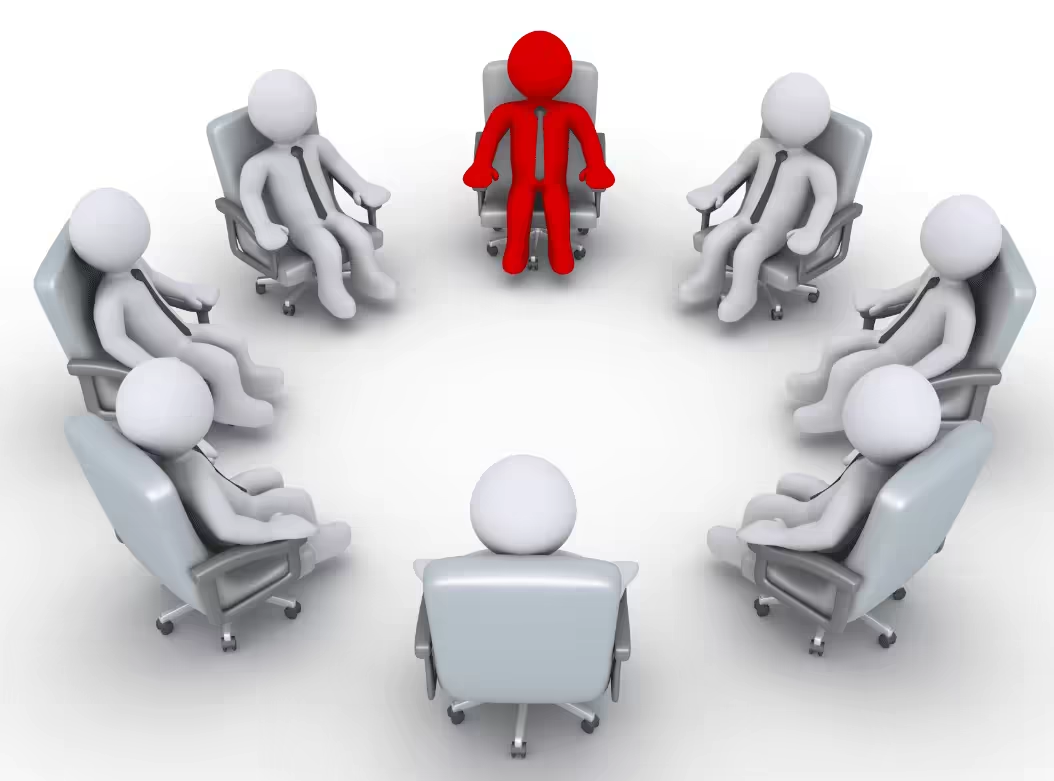Leadership Competencies are a combination of knowledge, abilities, behaviors, values, and specific skills that leaders should develop to guide their teams effectively. Standards of excellence that an organization can focus on are defined to create a blueprint for identifying and developing leaders for the present and prospective future roles.
By deduction from the definition, we can note that there is no one unique set of leadership competencies; different leaders within a specific organization require various skills, knowledge, and abilities.
Many organizations work with a leadership competency framework, a collection of competencies they have identified as key to achieving their leadership development goals and being relevant for their leaders and their organization. Thus leadership competencies are not based one-size-fits-all approach, which means no definite set of competencies will cater to all organizations.
"For a business to achieve the goals they want, they must engage competent leaders with skills well suited to overcome challenges and fulfill these ambitions. Leadership competencies are the skills used to steer firms towards collaborative success. Competencies aid leaders by giving them the ability to create strategies for managing operations; making decisions and creating solutions for unique problems; managing politics and influencing stakeholders; adapting to change and taking risks and innovating." – Alex Mastin
It is a fact that future business leaders do not emerge by chance. The best leaders step into their biggest roles after a period of intentional development. Often the culmination of years of hard work looks like a natural step. Work that entails building the exact skills, experiences, and knowledge.
Related: Leadership Competencies: A step by step guide to understanding
The Critical Competencies for Leadership
Over the last decade, workplace culture has shifted significantly, putting new demands on businesses, such as the consequences of globalization, new technologies, and staff diversity. Organizations today are searching for a leader with different abilities and competencies than those previously employed. Todays leaders must be able to lead their organizations, people, and themselves.
In todays workplace, organizations are looking for ten crucial leadership characteristics, which include:
Building and Leading Successful Teams
Successful commercial practice necessitates the use of a team. Workgroups, whether permanent or temporary, must perform efficiently and successfully.
Creating a Successful Business Execution Culture
Leaders must put the strategies they helped develop into action. A strategy is little more than a notion if it is not implemented. In this course, youll discover how to create and lead an execution culture that encourages people to turn plans into action
Becoming an Emotionally Intelligent Leader.
Emotional intelligence can assist you in making better judgments and improving your professional connections. Youll learn skills and habits to help you improve your emotional competency and become a more aware and capable leader in this course.
Developing Successful Coaching Relationships
Leaders must foster a coaching culture and be capable of taking on coaching responsibilities at any moment. Youll discover how to create dynamic and purposeful coaching relationships in this course.
Leading through Problem Solving and Critical Decision Making
The ability to solve challenges and make difficult decisions using your teams abilities and expertise is a hallmark of leadership. Great leaders know when to move swiftly and advance with the knowledge at hand, and when to take their time and acquire more data. Youll learn how to adopt a three-stage method to engage your team in this effort in this course.
Accountable Leadership
Accountability is defined as taking responsibility for ones actions, which is critical to your companys success.
The Agile Leader
Even a modest modification in strategy can help you achieve your goals faster. You must learn to develop a focused and adaptable mentality, respond fast using adaptive strategy, and empower others to achieve goals.
Leading through Shared Vision
A compelling vision, stated effectively, inspires people to act and delivers corporate success. Design and present a realistic, actionable vision that motivates people to take action.
Leading Diversity
In todays economy and workforce, diversity is a given source of significant profit. Learn how to manage and exploit diversity for the benefit of your organization.
Human Capital Management
Leaders should prioritize team building, but they should do it while keeping company goals and needs in mind. When deciding how to manage their team daily, leaders must keep the organizations current and future goals in mind.
Communication
The way leaders communicate has evolved with an increasing number of people working remotely. Leaders frequently serve as a vital link between their team, other departments, and upper management. Competent leaders can effectively express messages to their team, request clarification when necessary, and ensure that team members understand their expectations. Frequent communication and comfort with various communication methods, such as email, instant messaging, and video conferencing, are essential.
Resilience
Resilience is a must-have skill for todays leaders since it determines their ability to address problems and see new opportunities in those confrontations successfully. It denotes a propensity to remain focused on adversities and uncertainties and the ability to manage emotions in challenging situations properly.
Leaders are judged not on how well they perform in good times but on how well they perform in bad times. Resilient leaders have the tenacity, courage, and poise to lead their teams through difficult situations. One of the most important leadership qualities and skills is staying put and adapting to change. Furthermore, resilience enables leaders to respond calmly and instil a positive mindset in the face of adversity.
Strategic Thinking
One of the most preferred leadership skills is a strategic attitude. It denotes an aptitude to think long-term, see things from a different perspective, and collaborate with others to achieve a common goal. Furthermore, strategic thinkers are more likely to develop strategies to achieve the organizations objective and carry out the plan effectively.
Leveraging Networks
Leaders with networking skills may build strategic relationships and effectively leverage them to achieve common goals by forming networks and alliances. By developing a strong internal network, leaders can accomplish several objectives. Strong relationships with key stakeholders can facilitate project approval. Furthermore, developing relationships with decision-makers in the business helps leaders maintain open lines of communication that help them stay informed about strategic changes that may affect their positions.
"Your internal and external networks are important leadership assets. They help you gain access to resources like information, expertise, and funding that are crucial and in enabling you to help those you are leading. Networks are also foster your learning by connecting you to people in organizations with different skills, perspectives, and contexts than your own" – Antony Mayo
Conflict Management
This leadership skill, also known as reconciliation competency, comes in helpful when settling workplace disagreements. Leaders skilled at resolving disputes may address and resolve competing interests between two or more parties in a delicate situation where mutual distrust may exist. Furthermore, by skillfully handling disagreements, leaders can develop trust, empathy, and understanding amongst parties. Finding common ground for opposing ideas and viewpoints is fundamental to conflict resolution.
Interpersonal Skills
Interpersonal core skills describe how leaders communicate with their teams, including how actively they listen to and respond to their concerns, deliver and take feedback, and communicate nonverbally. Developing excellent interpersonal skills can boost team performance and employee engagement, which are important for business growth.
Related: Steps to create a Leadership Development Plan
How to Develop Leadership Competencies
Developing competencies is a long-term process that necessitates tremendous work. Leadership is not something that can be acquired solely through books. Its about putting yourself in unique settings, keeping track of people daily, and dealing with complex problems. Navigating through difficulties can assist leaders in determining the skills they need to improve. Some people can do this on their own, without the need for outside assistance. Others opt to master the trade secret by attending various coaching sessions or seminars.
Above all, leaders must also answer the following questions, which serve as the cornerstone for competency development:
Do you treat all of your employees fairly?
When collaborating across teams, functions, and departments, leaders should inspire and motivate their teams and those with whom they collaborate. In addition, they must provide direction and assistance to team members as needed. As a leader, sometimes just listening to others and exhibiting concern may go a long way toward developing a true connection.
Do you have a strategy for leadership development in place?
Developing leadership competencies is a continuous process that involves careful consideration, creation, and implementation of a leadership development framework. A holistic leadership model based on substantial research can be used to help leaders identify and work on talents and behaviours that are critical for next-level responsibilities.
Are you an agile learner?
The ability to learn agility is essential for becoming a successful leader. Those who continue to learn new things have a sharper mind and greater abilities, are more knowledgeable about the latest advancements in their sector and are in a better position to lead. Furthermore, they are prepared for any unexpected obstacles, which is always desirable in a leader.
Who do you aspire to be like?
Inspiring role models are constantly there to look up to for successful leaders. But why is that? They have desirable qualities and skills worth following, and leaders might seek mentoring or counsel from them.
How good are your listening skills?
Since being a leader is not about gaining attention, active listening skills are vital for success. Instead, active listening requires paying attention to and embracing other peoples thoughts, opinions, and feedback. Furthermore, this skill entails successful verbal communication and the interpretation of non-verbal signs such as body language, eye contact, and so on.
Conclusion
Leadership competencies can be utilized in an organization to choose, develop, and promote leaders effectively. Several elements such as business strategy and future trends should be considered when developing leadership skills. HR practitioners should leverage the business strategy, including the global business plan, to drive the use of competencies in choosing and training leaders. The firm will maintain a competitive advantage by effectively developing a distinctive set of abilities for its leaders.
Related: Good leadership traits



